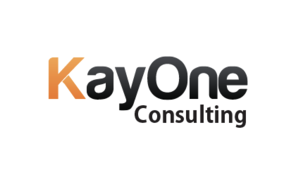Is Term Sheet Legally Binding – The Founder’s Dilema
When signing term sheets, one of the most common questions that a founder asks is “Is the term sheet legally binding”. A term sheet is a document that outlines the key terms of an agreement. It is like an agreement but not legally binding. But that does not mean that there is no legal aspect associated with term sheets. Let’s understand the common misconceptions aboutthe term sheet and how they work. So, we’re going to clear up any confusion you have here.
Why is Term Sheet Non-Binding?
A term sheet is not legally binding; it’s just a document between the parties to show their understanding and outline what will happen in detail. The person who gets the term sheet must read this carefully with legal advice before signing. This is because some things may be different than they desire or thought they are getting. For example, anyone can still make changes to the deal, and there’s a lot of room for disagreements. Moreover, theterm sheetdoes not include details but gives broad explanations.
What Are The Binding Terms In An Otherwise Non-Binding Term Sheet?
While the term sheet is not a legally binding agreement, some terms bind you legally. Following are the legally binding terms that you should be aware of:
1. Confidentiality
The term sheet will contain a confidentiality agreement, which is legally binding. The confidentiality agreement is a legal contract that binds the parties not to disclose confidential information. The agreement will state what constitutes “confidential information” and outline steps taken in case of a breach. The term sheet may include other legally binding terms like non-disclosure agreements or work product assignments.
2. Exclusivity
Some agreements contain a clause requiring the buyer not to negotiate with other potential bidders. This phenomenon is known as exclusivity. When negotiating an agreement, it may be possible for both parties to agree on some form of exclusivity. It is also possible that there are no clauses regarding this matter at all. However, if one party does request exclusivity, the other party may have to consider that request seriously.
The length of exclusivity can also vary depending on what both parties agree to. There may be situations where one side requests a shorter period and the other longer. In such scenarios, both parties must negotiate to reach an agreed term. This clause could play into negotiations over price as well. The buyer may not be willing to pay as much if they cannot secure a higher price.
3. Binding Language
The binding language of the term sheet will dictate whether or not it is legally enforceable. For example, agreements that require a “consideration” in return are contractually binding. And in case of a breach, the other party can take legal action. However, some contracts do not contain a consideration. When you sign an agreement, you may engage in a trade-off that is subject to a verbal agreement, but remember that it is not legally binding.
4. Required Negotiation Terms
The key terms to watch for are the potential price, purchase date, and repayment terms.
The agreement could require that you pay $200,000 in three equal installments of $67,000 over one year or six months at an interest rate of 12% per annum. Do not sign any agreements without understanding the terms. If you do, they may be binding for a long time. If you are uncomfortable with the terms, tell them your concerns and ask if it is possible to change them.
Use a term sheet to actively communicate what both sides want from the deal before negotiating more details. Make sure to address all your questions and leave no items unchecked.
Difference Between A Term Sheet And Contract
A term sheet is a document that outlines the basic parameters of a deal. Term sheets and contracts are often confused but are two different phenomena. Knowing the critical difference between term sheets and contracts is essential: A contract legally binds both parties, while a term sheet does not necessarily bind either party. However, it is helpful to have an understanding of what each term means to be able to read them.
- Agreement: A legally binding contract or arrangement accepted by both parties involved, usually formalized by their signatures in the presence of witnesses.. This could be anything from signing an apartment lease agreement to agreeing on a trade deal between two companies. The key difference between term sheets and contracts is that the latter legally binds both parties, while a term sheet does not necessarily bind either party.
- Legal Binding means required by law or valid according to court rulings. Typically, this refers to something that has been ratified with a formal agreement and meets the requirements of the law as determined in relevant jurisdictions. For example, if you sign a deal to go into business with someone else for five years (a contract), it would be legally binding because it meets the requirements of the law that differ from jurisdiction to jurisdiction.
- Default: The failure to fulfill an obligation under financial arrangements. This could be anything from missing a mortgage loan or credit card debt payment. When it comes to term sheets and contracts, there are typically clauses to address what happens in the event of a default, such as if there’s not enough income to repay the loan.
Duration Of A Term Sheet
The duration of the term sheet should not exceed six months, and it may have provisions for an extension by mutual written consent. Unless agreed upon otherwise in writing, changes to terms are prohibited without advance notice or permission from all parties involved. The document must contain an expiration date typically set after the term sheet expires.
Can the Term Sheet be Deemed Binding?
The term sheet can be deemed binding in some circumstances, such as if the parties wish it. The agreement details are usually written in a document called “the definitive agreements.” These documents might include more information about terms and conditions not discussed during the negotiation process (such as location or ownership). This is why the term sheet is so important. It summarizes the agreed-upon vital points and outlines how these agreements will be implemented.
The Bottom Line
If you are a start-up founder with a term sheet, it implies that you have a strong impression of your investor. While you already have a solid impression of them, you must still work hard. Having a term sheet does not mean that you have the funding finalized. There is still a need for much negotiation before the final confirmation. It is wiser to hire a virtual CFO during the negotiating and signing of the terms sheet. But above all, before you sign any document, ensure that you understand thenuances of terms sheets.




